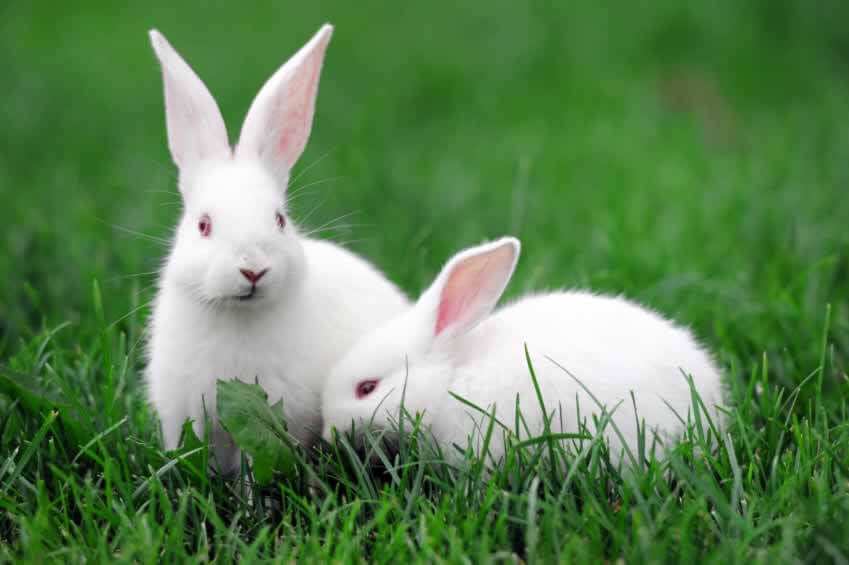What Will You Give the Easter Bunny This Year?
Easter is almost upon us, or as we in the sheltering world say, “Brace yourselves—it’s rabbit season.” I’ve rescued rabbits for 10 years, and I volunteer in the small-animal room at my local shelter. And every spring, it seems as though, for many cast-off Peter Cottontails, the bunny trail leads straight to our door.
While most of us consider cute, scampering rabbits to be one of the quintessential signs of spring, it can be a tough time for many of them. The ways in which we inadvertently cause them to suffer—for everything from fur to floor cleaner—would make any bunny hopping mad.
Let’s start with the Easter Bunny. Every year, breeders and bunny mills churn out irresistible baby rabbits for parents to put in their children’s Easter baskets. And every year, for several weeks after Easter, shelter workers take in a deluge of these same rabbits—after they have chewed through electrical wires, books, baseboards, doorjambs and all the Easter lilies.

What breeders and pet stores often fail to mention as they’re ringing up those fluffy little bundles of Easter joy is that rabbits, like all animals, have some particular needs. They chew incessantly (their teeth never stop growing), and they have special dietary needs (think less lettuce, more hay). They require constant mental stimulation and space to run around in, and they get depressed when confined to a cage. They can live for up to 12 years.
So, when Bugs turns out to be more work than parents bargained for, he usually finds himself tossed out like a stale Peep. He might be dropped off at an animal shelter, relegated to a cage outside or simply turned loose in the wild, where he won’t stand a chance against starvation, harsh weather and predators.
But buying bunnies on a whim and then abandoning them once reality sets in is just one way that we cause them to suffer.
Many of the fur accessories, trim and jackets that you see in stores are made from rabbit fur because it’s often cheaper than other animals’ skins. Rabbits on fur farms spend their entire lives confined to tiny, filthy metal cages and often have their necks broken while they’re still conscious and able to feel pain. On angora farms, rabbits scream and writhe in pain as workers tear the fur out of their skin. I couldn’t wear a coat made of rabbits any more than I could wear one made of golden retrievers.
Rabbits’ mild manner and the ease with which they breed also make them a favorite victim of experimenters, who use them to test chemical products, burning their skin with noxious chemicals and dripping substances into their eyes, even though superior non-animal testing methods are readily available.
And it should go without saying, but anyone who cares at all about rabbits shouldn’t eat them. The House Rabbit Society and other rabbit advocates have been fervently protesting outside stores that sell rabbit meat.
We humans have long had a hard time thinking straight about other animals—we keep some as “pets” while serving up others on our plates—and our treatment of rabbits shows just how schizophrenic our relationship with other species can be.
So this Easter, let’s give rabbits a break by vowing not to wear them, eat them or buy cosmetics or household products that were tested on them. (You can check to see if a company is cruelty-free by using PETA’s Beauty Without Bunnies searchable database.) And if you’re really ready to give a rabbit a lifetime of care, hop on down to your local humane society or rabbit rescue group to adopt one—preferably right after Easter.
By Kendall Bryant
Kendall works in the Cruelty Investigations Department of PETA.

